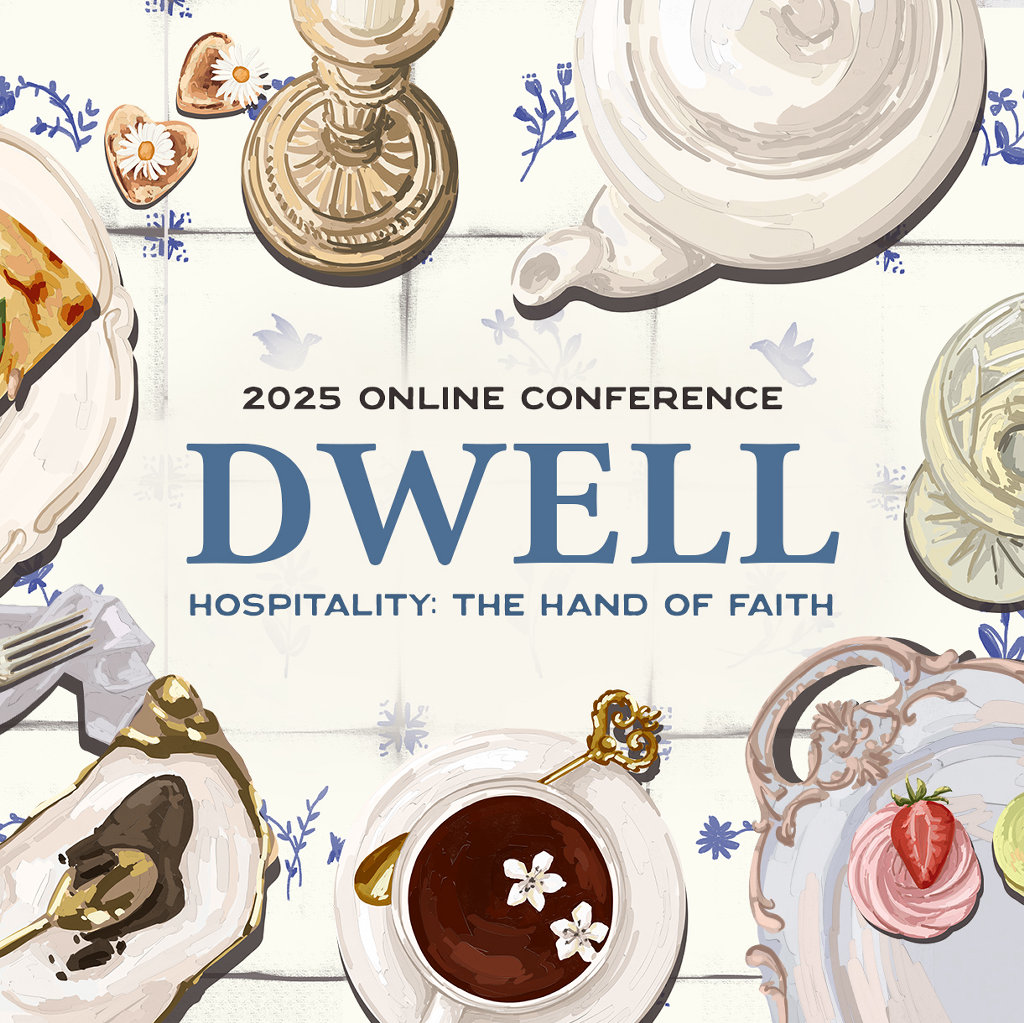What About Dating In High School?

Student: What do you think about students dating in high school?
Gibbs: Why date? Why not just get married?
Student: We’re obviously not old enough to get married.
Gibbs: So why date?
Student: I want to marry someone I know really well. Look, I’m dating someone right now. But we’re not dating for fun. We’re dating to get to know each other better.
Gibbs: No. You are not currently in a relationship with a girl to “get to know her better,” and we both know it.
Student: What makes you say that?
Gibbs: I used that same pious-sounding excuse when I was your age and my parents didn’t know how to respond to it either.
Student: Go on.
Gibbs: What is the purpose of “getting to know her better”?
Student: To see if we’re compatible.
Gibbs: Compatible for what?
Student: Marriage.
Gibbs: You’re not compatible for marriage. You already know that.
Student: Why?
Gibbs: Because at sixteen, you’re not ready to marry anyone at all, which means you can’t be compatible for marriage with anyone in particular.
Student: Why not?
Gibbs: It’s a bit like trying to find a variety of cheese which suits the taste of someone who is allergic to milk. You don’t see a problem with dating in high school, but what about elementary school? Are you in favor of students dating in elementary school?
Student: No, but that’s different.
Gibbs: How is dating in fourth grade different than dating in tenth grade?
Student: Seriously? In fourth grade, you haven’t even gone through puberty yet.
Gibbs: Good. That’s one difference. Keep going.
Student: I could think of other ways.
Gibbs: When you think of them, let me know. While I am waiting, let me give you some ways in which fourth graders and sophomores are not different. Neither fourth graders nor sophomores are physically fully grown, neither are legally responsible for their own actions, neither pay for their own food or clothes or rent, neither have careers, neither has a high school diploma, neither is legally old enough to marry, neither can vote, neither can buy wine, neither can be drafted for war, neither has credit, neither can rent an apartment… I could keep going.
Student: That’s kind of insulting.
Gibbs: No, I would say it’s just not particularly flattering. Any other ways fourth graders and sophomores are different?
Student: Wouldn’t you say that a sophomore has a sense of self-awareness that a fourth grader doesn’t have?
Gibbs: Sometimes, but not always. A great many fourth graders are more obedient and respectful of authorities than sophomores, and I would say those are more important factors in determining readiness for marriage than mere self-awareness. The biggest difference between fourth graders and sophomores, at least so far as this conversation goes, is that sophomores want to date, but fourth graders don’t.
Student: You didn’t answer my question, though. I want to get to know my girlfriend better to see if we’re compatible for marriage.
Gibbs: For the sake of argument, imagine two fourth graders want to go on a date.
Student: Like I said, that’s different. They’re not ready.
Gibbs: Let’s say the fourth graders know they are not ready to get married, but want to get to know each other better. How long do you suppose they would have to date before they knew they were compatible as spouses?
Student: A long time.
Gibbs: How long?
Student: A really long time.
Gibbs: Why?
Student: They’re both still changing.
Gibbs: How old should you be before you get married?
Student: I mean, at least twenty-three or twenty-four.
Gibbs: Fourth grade is only six years behind you. Twenty-three is seven years ahead of you. Would you want the nine-year-old version of yourself choosing the girl you’d date in high school?
Student: I don’t even live in the same state I lived in when I was nine.
Gibbs: Right. If no one is ready to get married at the age of 16, then “getting to know” someone romantically in high school will simply terminate the relationship, because you will learn the person you are dating is not yet marriage-material. I don’t mean that as an insult. At 16, a person might have a lot of potential, but you should marry someone based on what they have done, not what you hope they will someday do. At 16, you just haven’t accomplished enough to be worthy of marriage.
Student: “Worthy of marriage”?
Gibbs: Yes. Marriage is a noble and high calling. Think of marriage as an honor which must be prepared for.
Student: So why aren’t dating couples getting to know each other better?
Gibbs: I didn’t say they weren’t getting to know each other better, just that knowing each other better is an accident of romance, not the purpose of it.
Student: What’s the purpose, then?
Gibbs: What kinds of things do you like to do with your girlfriend?
Student: Talk, go to the movies, text, listen to music, hang out.
Gibbs: Do you do all those things with your male friends, as well?
Student: Yes.
Gibbs: But you’ve never told anyone that you were going to see the new Terminator movie with Jackson and Lucas “so you could get to know them better.”
Student: But going to the movies is just fun. It feels good to hang out with friends, and friends have to do something.
Gibbs: Agreed, and the same is true of a girlfriend. It feels good to have a girlfriend and to be around your girlfriend. This is only right, though. A friendship should exist for the sake of enjoying another person. A friendship should exist for no other reason than itself, by which I mean the love of the other person. When our friends have ulterior motives for friendship, we feel betrayed and used. For this reason, I don’t buy the studious sounding claim that a high school dating relationship is some kind of investigation, some kind of fact-finding mission wherein an extensive study is being conducted to determine the viability of a marriage. You both know that people change a lot in the first few years after graduation. You are both curious about what the profound and sudden freedom, autonomy, and anonymity which comes with college will do to the other person. And you both know it would be dangerous to marry someone before seeing how they responded to all that.
Student: What if we go to college together?
Gibbs: In order to go to the same college together, you will have to begin preparing to go to the same college together at the beginning of senior year. This means you will both have to make a monumental economic and geographical commitment to one another while still “getting to know one another.” That kind of thing makes the relationship incredibly top heavy. It means that you’re asking the other person to undertake marriage-level commitments to you, but without marriage-level rights or marriage-level oaths to govern your conduct toward one another. Very few relationships survive that kind of strain.
Student: So, if dating in high school is such a bad idea, I guess you have a pretty low opinion of people who do it.
Gibbs: No, that’s not true. It tends to be the more responsible, more diligent students who date in high school. The number of rebellious Romeos at ACCS schools is pretty low, as far as I can tell. Dating in high school, especially a private Christian high school, tends to require a little ambition, and given that ennui and sloth are besetting sins of this age, I have a hard time heavily faulting a student who is striving and reaching, even if I think they’re reaching a little too far. If I had to state a preference for student body issues, I would far rather sophomores who were dating than sophomores with smart phones or sophomores who play video games.
Student: So if I’m not dating, what should I do if I want to prepare for marriage?
Gibbs: Do your own laundry. Get a lousy job bagging groceries as soon as you can. Poke your head in the principal’s office once a week and say, “I have ten minutes and nothing to do. Do you need some chairs or tables moved around or something?” Don’t get a phone. You’ll have to get one when you’re an adult, but hold off as long as you can. Learn to cook something basic, hearty, and tasty, so you can give your mother the night off every now and again. Figure out which one of your teachers lives the best life and follow him around like a shadow, do everything he does, ask him what he thinks of birth control, taxes, NPR, something controversial. Feel free to annoy this teacher with your interest in his life and opinions. Do pointless tasks with your dad— he probably drives to the city dump once a week or something like that. Go with him. It doesn’t matter if you say anything. It’s enough to be there with him. He’ll say something. Learn one book of the Bible really well, probably Ecclesiastes or Proverbs or St. Matthew’s Gospel. When you watch movies, watch black and white movies. Learn a few old prayers by heart which you can say while you walk from one class to another. My favorite is, “I know, O Lord, that I justly deserve any punishment Thou mayest inflict upon me, for I have so often offended Thee and sinned against Thee in thought, word, and deed,” but I also like, “Not unto my judgment, nor unto my condemnation be my partaking of Thy holy mysteries, O Lord, but unto the healing of soul and body.”
Student: Did you do those things to get ready for marriage?
Gibbs: Only two or three of them. The rest of them are things I do that keep me married, and so I assume they would be good in preparing for marriage, as well.
Student: I’m not breaking up with my girlfriend.
Gibbs: I understand. I never broke up with any of mine, either, and I still kind of wear that as a merit badge.
Student: But you don’t think my relationship will work out?
Gibbs: No.
Student: Why?
Gibbs: For the standard reasons. Sooner or later, one of the two people in the relationship realizes that marriage is not a possibility and then the whole thing begins to seem rather pointless. At the beginning of the relationship, both people are still too thrilled by the honor of having their existence affirmed by a member of the opposite sex to think about how profoundly tenuous the whole thing is.
Student: But what if the point of the relationship is to glorify God?
Gibbs: When you’re sixteen, you can honor God just as much in a friendship as in a romance.
Student: But the relationship I am in now has been so good for me.
Gibbs: I believe that. When I first began teaching, I was strongly opposed to every romantic relationship between students. Now, I am only mildly opposed to them. Romantic relationships often bring out what is best in young men. A high school sophomore with a girlfriend takes better care of his appearance. He spends money on someone other than himself. He even prays more and reads his Bible more. He has a sense of duty and obligation.
Student: Then why are you opposed to student relationships?
Gibbs: Because all that is merely the silver lining, and the silver lining does not last as long as the misery and confusion which results from a failed romance. Granted, a little misery is not the end of the world, and a young man learns a lot about the nature of the soul while tending to a broken heart. However, I think that most high school romances are based on faulty conceptions of romance and are generally evidence of a dangerous lack of self-awareness.
Student: But not every high school relationship is doomed to fail, right? Look, I know how it sounds, but what if mine is one of the rare ones which leads all the way to marriage?
Gibbs: That’s the dangerous lack of self-awareness I was just referring to. Some people who date in high school end up marrying. And some arranged marriages work out happily, as well. Would you like your parents to arrange a wife for you?
Student: No.
Gibbs: Me neither. That would be terribly strange, though I am sure it works out well every blue moon. You see, wisdom is really not concerned with outside possibilities, outliers, and unusual cases. Wisdom is concerned with human nature. Wisdom is concerned with what is normal, what is typical, and with what usually happens. Being wise means not making exceptions for yourself or treating yourself as a special case. Wisdom means regarding yourself as common, average, the kind of person for whom proverbs, maxims, warning labels, cautionary tales and generalities are applicable.
Student: So what does that have to do with dating in high school?
Gibbs: The kind of fellow who says, “I know pretty much all high school romances fail, but mine is going to last,” is already thinking of himself as someone for whom conventional wisdom does not apply. I don’t have a lot of confidence in someone who thinks of himself as beyond the authority of conventional wisdom. To be frank, no young man who thinks he is exempt from what is common or typical ought to be dating.
Student: But what if I’m trying to be wise in the way I date?
Gibbs: There are better and worse ways to go about nearly anything. Given that you’re a pretty responsible young man, I am quite sure you’re doing this ill-advised thing in a decent, orderly way. There are also more and less safe positions to be in when your car hits a brick wall.
Student: Very funny. Look, let me ask you one more thing— and I’m still not breaking up with her— but let me ask you one more thing. If God didn’t want teenagers involved in romances, then why does He inspire romantic feelings in teenage hearts?
Gibbs: A fine question. While God awakens the heart (and body) to the desire for romantic love, wisdom demands we learn to control those feelings, not be controlled by them. Man is made of the earth, and the earth must be subdued. A great many desires are natural, but we may not indulge them whenever and however we want. The desire for love emerges many years before it can reasonably (or legally) be satisfied, and the patience and self-control learned in those intervening years is, perhaps, the greatest preparation for marriage you can undertake. You might say that God inspires the desire for romantic love so early just so you can develop the necessary patience for marriage.
Student: But what about the few happy couples out there for whom none of what you’re saying is true? Are you saying that everyone out there who married after dating in high school is secretly miserable?
Gibbs: Absolutely not. I will gladly admit there are a few counterexamples to nearly everything I’ve said.
Student: It doesn’t bother you that your ideas are not absolutely, universally true?
Gibbs: No. They’re normally true, and I’m a normal person, which makes them very helpful for me. I have regular problems for which there are regular solutions, though I don’t pursue those solutions very tenaciously.
Student: Why?
Gibbs: Because I am not a very good person.
Student: What if I’m not a normal person? What if mine is a special, unusual case?
Gibbs: It might be. It just might be… I only have conversations like this one with students a dozen times a year.

Joshua Gibbs
Joshua Gibbs is the director of The Classical Teaching Institute at The Ambrose School. He is the author of Something They Will Not Forget and Love What Lasts. He is the creator of Proverbial and the host of In the Trenches, a podcast for teachers. In addition to lecturing and consulting, he also teaches classic literature through GibbsClassical.com.









